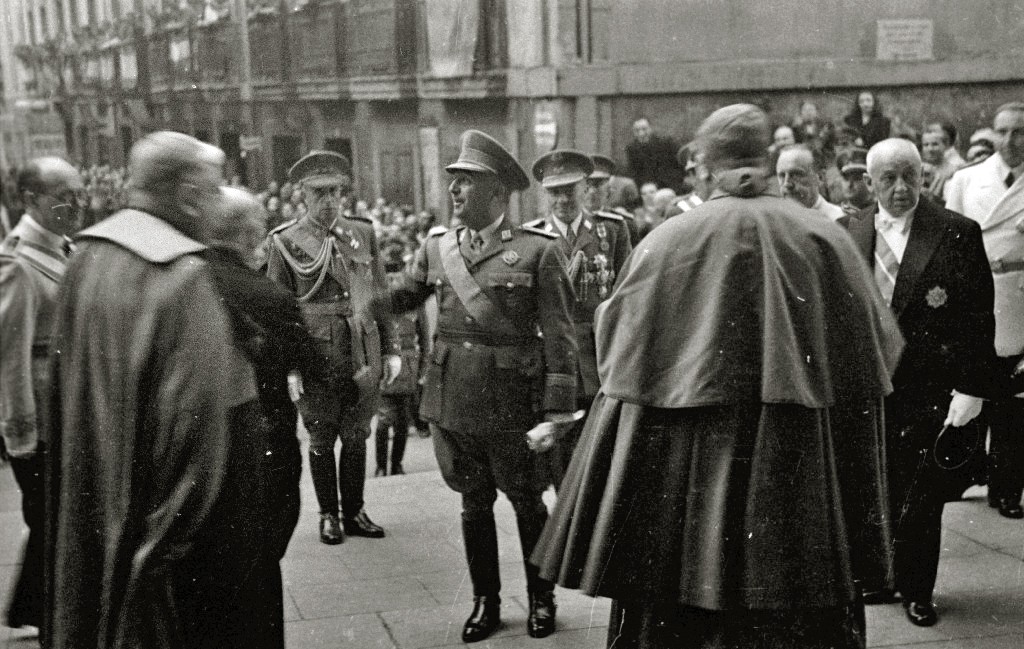
Mass readings for the 26th Sunday in Ordinary Time:
Numbers 11.25-29 Psalm 19.7, 9, 11-13 James 5.1-6 Mark 9.38-43, 45, 47-48
When I first really meditated on Jesus’ caution that to cause someone to stumble in their faith had consequences akin to having a great weight tied to you, and then to be thrown into the sea, it was in the context of ordained ministry and my role as preacher and teacher of the faith.
It makes one cautious in some regards, but in other areas it does mean rising to the challenge of talking about difficult things; of calling to our attention worrying trends in the culture that surrounds us, but also within the society that is the Church. We need to watch where we step so as not to trip, and part of my duty, is to hold up the lamp of faith so that we might see where we are walking in dark days of conflict.
It also calls me, as clergy, to remember that I am to set an example. Questioning the integrity of the messenger quickly leads to questioning the message itself.
Yet, we are all, by taking the name “Christian”, messengers of the Gospel, and Christ’s caution applies to us all.
Today my concern is about our behaviour both as a civilization and as the Church within this society. That in controversial questions, not only is there an increase of intolerance over differences, that the language, the rhetoric is itself becoming rather violent, threatening, bullying – that with those whom we disagree whether it is on climate change, reconciliation with first nations peoples, COVID, gender and sexuality, the favored rhetorical tactic is to demonize, insult, condemn, shame and bully. I recently listened to a talk given by, of all people, the English comedian Russell Brand, and he rightly observe that, “once contempt enters into an argument incredible things become possible.” (https://www.youtube.com/c/RussellBrand/videos)
It’s hard as a society to come back from that sort of thing. For those who have the minority opinion, hold unfashionable views, who have been the object of vitriol, called out as “those people” the fear that instills, the loathing that nurtures so undermines the trust essential to the life of a community, that later attempts at friendly conciliation are likely to be met with suspicion, regarded as a trick, a ploy, that behind the smile there remains the threat of violence that will come soon enough if one does not give in.
When I visited the Cree community at Moose Factory, now years ago, I remember the standoffish nature of the community people who met us, the somewhat cold reserve they had; and these were Church people. In spending time with them, in conversation with them, one came to learn that the response to our little group of Christian youth that had ranged from cautious friendliness to downright hostility was the legacy of what could be called the two-facedness, dishonesty and aggression the Cree had experienced from government authorities, corporate businesses, that were for them the representative of what we might call “white Canadian society.” It was unfair for them to judge a bunch of teens from the Ottawa Valley according to the actions of land developers, mining companies, federal and provincial bureaucrats, but understandable. I did that trip twenty years ago; I don’t know that we’ve progressed a whole lot since then.
If we continue in divisive talk and action as a country, how long can we last?
The same question arises with respect to the Church. It is to my everlasting confusion that I find on social media Christians, Catholics, and yes, priests engaging in such bad behaviour; calling out those with whom they disagree in the worst possible way. We cannot equate our faith with political positions. I’ve said before the Church has boxed herself in with both government of the left and the right in the past: we can think of Franco’s Spain in the 1930’s; the Sandinista government of Nicaragua in the 1980s as a couple of examples. The Church can’t be a partisan refuge for one side or the other, but rather that place where both sides are recalled to themselves as God’s people, fallen, and so mutually in need of grace, mercy, forgiveness.

But I know for many, their convictions on some issues are so strong, the truth of it so self-evident to them that to question, let alone oppose, is a sign of either stupidity or evil. We need to be careful of the presumption that we are in the know, and disagreement can only come from our interlocutor’s ignorance or malevolence.
I remember years ago, when still an Anglican, attending a presentation on development work in Uganda, Africa. The fellow presenting told a story about how a rural hospital had approached an aid agency to get a diesel generator to back up the power supply because they suffered a lot brownouts and blackouts. The power was especially needed for the refrigerators in which medicines were kept.
Well, this organization had adopted a policy of no longer funding projects that were dependent on fossil fuel use. By the way, that can lead to all sorts of good, interesting innovation. In this case this organization proposed a solar powered battery system as a backup, and they over road the objection of the little hospital, and the consulting electrical engineer who was a Ugandan from Kampala who said that what they proposed wouldn’t work. So, with it being made as a “take it or leave it offer” they took it.
At the first power outage, the solar system failed within a couple of hours and a lot of valuable medicines were lost. The hospital then had to spend money earmarked for other important things on buying the diesel generator themselves. The solar system was scrapped. Such was the bitterness over what happened, that this rural Ugandan community would no longer have anything to do with that particular aid group. And so, there was waste of resources, time, but also a very bad experience that coloured this town’s perception of western development aid organizations. Faith in the international community was undermined, trust made that much more difficult.
Global solutions rarely have true universal and uniform application. Pointing this out should not be taken as an insult; there needs to be charitable forebearance and humility.
I know something about being tossed into the sea, perhaps not with a millstone around one’s neck, but with a weight attached. Growing up in Port Credit, spending summers on the lake and on the Credit River, as boys are apt to do, we did some stupid things, that were nonetheless fun. So, while I do not endorse this for anyone and I rather doubt it could be done these days, one thing to do was to climb up onto the railroad trestle that crossed the river, and then to jump off. Wanting to see if any of us could actually touch the bottom, we hit on the idea of getting some heavy rocks, and holding onto them, do the jump and see if it would take us what we thought were the extra couple of feet to the riverbed. I have had a few terrifying experiences in my life, and that one can be counted among them. I don’t know when I let go of the rock, and I don’t know if I got anywhere close to the bottom; but after getting back to the surface I wasn’t too bothered to ever try again.

I remember the fear as the downward plunge continued in that murky green world that is the middle channel of the Credit River. That fear arises again when I sense our society, our Church community along with it, taking the plunge, as if to see how far down we can go.
We are to be a Church of blessing, offering water to the thirsty in Christ’s name; it is that kind of charity that should inform all we say and do.
Amen.